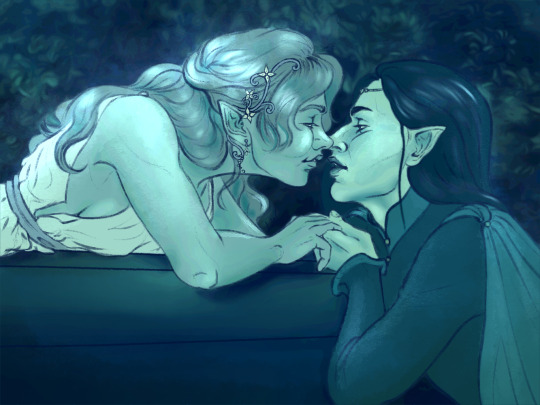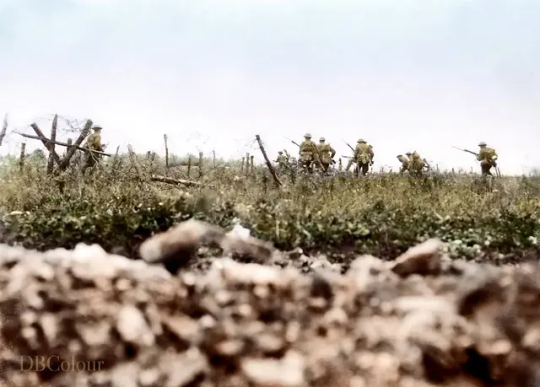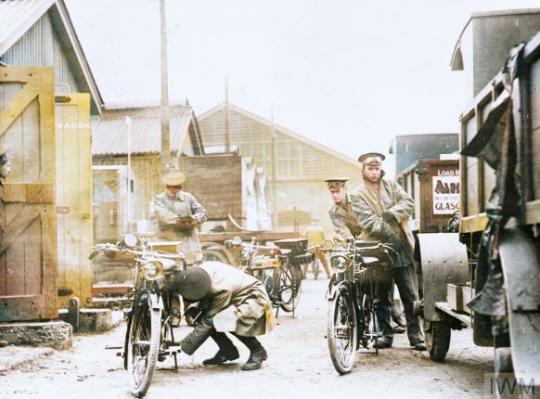#the Battle of the Somme
Text

Canadian infantry in a front line breastwork in Ploegstreet Wood, October 1915.
#world war 1#canadian history#wwi#historical photos#world war one#war history#military history#The Lost Generation#The wars#the Battle of the Somme#ww1#history#black history month#ww1 stories#ww1 portrait#The Great War#The First World War#1918#1917#1916#1914#Battle of the Somme
77 notes
·
View notes
Text

A German trench occupied by British soldiers of the Cheshire Regiment near the Albert-Bapaume road at Ovillers-la-Boisselle, July 1916, during the Battle of the Somme
1 note
·
View note
Text

Herbert James Gunn (British, 1893-1964), The Eve of the Battle of the Somme, 1916. Oil on canvas, 80 x 87 cm. The Fleming Collection, London
165 notes
·
View notes
Text

The Battle of the Somme took place between 1 July and 18 November 1916. It was one of the largest battles of the First World War, in which more than a million men were wounded or killed, making it one of the bloodiest battles in human history - by John Warwick Brooke (1886 - 1929), English
91 notes
·
View notes
Text

Prithee, love, when I am gone, do not weep.
Narmeleth and Lathuilas, in Eregion during the Second Age.
#laura arts#lotro#narmeleth#narmeleth/lathuilas#lathuilas#HEHE#lotr#lord of the rings oc#lord of the rings online#lord of the rings online oc#lord of the rings#tolkien#tolkien oc#description in alt text#ignore that i wrote first age please i literally forgot math#this is almost as embarrassing as getting the year wrong for the battle of the somme
209 notes
·
View notes
Text

Men of the Wiltshire Regiment advancing to the attack through the wire, Thiepval, 7 August 1916.
38 notes
·
View notes
Text

Clearing of Captured Trenches
The complete clearing up of captured trenches in which there are deep dug-outs requires a considerable amount of careful arrangement. The following method is suggested:-
A party of men should go forward with each of the leading lines. The men with the first line should remain in the front trench captured. The men with the second line should remain in the second trench captured and so on.
These men should act as ‘Caretakers’ to the trench until the arrival of the proper clearing up party.
They should all be supplied with P[hosphorous] bombs, which they would thrown down into all dug-outs in their portions of the trench. It is believed that the 7th Division used these P bombs with great effect, as they set fire to the dug-outs and the occupants were burnt alive, asphyxiated or forced to come out.
The ‘Caretakers’ should take no prisoners. The reason for this is that should the enemy’s barrage prevent our supporting lines following up the leading lines, captured Germans might be able to empower their guards and then shoot our leading men in the back.
They actually did this more than once e.g. La Maisonnette, where a whole position was recaptured by the prisoners.
Larger parties should advance with the supporting lines and carry out a systematic clearing up of captured trenches.
17/9/16 – II Corps – G. 339. Miscellaneous Notes gathered from Divisions who have taken part in recent offensive operations.
A British No 26 white phosphorous grenade, or P Bomb. Literally just a tin can filled with white phosphorous and intended to produce a smoke cover. Troops also found them very useful for clearing German bunkers.

Headquarters of all units and formations had the responsibility to collect reports and analyse them for lessons that could be learnt from each of the operations they undertook. Every so often documents such as this, compiled from subordinate units, would be disseminated by corps or army headquarters. They're not really official doctrine or rules to be followed, but points for discussion and analysis by commanders. This one covers the first couple of months of the Battle of the Somme.
One of the key issues new units ran into was not "mopping up" positions they'd just captured and a lot of effort was put into remedying this after 1916.
102 notes
·
View notes
Text
Some Tolkien affirmations to help you along when the darkness seems too much and everything seems lost
"The world may be grim, but there's always hope. Even in the darkest of days, there may be one bright star to guide you."
—Elrond
"It is not despair, but only the handing on of a torch."
—Aragorn
"The greatest good returns at last to those who share it freely."
—Gandalf
"It is not by sorrow and by suffering that we grow. It is by the choice we make when faced with sorrow and suffering."
—Fëanor
"The world is changed because I am in it."
—Bilbo Baggins
bonus round (Tolkien never actually wrote this — Peter Jackson did — but it's a good fucking line and Tolkien would have 100% agreed with it):
“Saruman believes it is only great power that can hold evil in check, but that is not what I have found. I found it is the small everyday deeds of ordinary folk that keep the darkness at bay. Small acts of kindness and love."
— Gandalf
#You have to realize how much Tolkien had refused to break or lose his faith in people despite being in the Trenches of World War 1#Specifically: he was there for the Battle of the Somme — the war at its absolute worst#He arrived two weeks after it started + lost two best friends + was medivac'd out only a month before the battle ended#Hell was his everyday experience for four months#until he was injured badly enough to merit (even in the eyes of the horrifically cruel military standards of the age) sending him home#He saw mankind at its darkest and worst ever#he lost things and people who were precious to him — and in horrific ways we will hopefully never have to know firsthand#and yet through it all and after he refused to lose his hope and faith even though nobody would have blamed him if he had#in fact he came to believe that seeing mankind at its worst made hope and optimism and faith more important than ever before#AND IT MOVED HIM TO WRITE THIS#And then World War II happened (AND THE HOLOCAUST)#and far from convincing him that he was wrong#it just made him more certain that he was right#what a goddamn Chad#that John Ronald Reuel Tolkien#quotes#the hobbit#gandalf#jrr tolkien#j.r.r. tolkien#optimism#inspiration
31 notes
·
View notes
Text

Unlikely friendships between two footbal clubs.
Leyton Orient 🏴 & Edinburgh’s Heart Of Midlothian 🏴
A friendship that dates back the early part of The Great War (1914 ~ 1918). Players of Hearts and then-named Clapton Orient led the way as the first professional footballers to volunteer en-masse for what became known as the “Pals’ Battalions”. Both Battalions suffered terrible losses and heavy casualties, with three Orient players and three Hearts players killed on the first day of the Battle of the Somme alone.
To celebrate 150 years of Heart Of Midlothian, next year the Scottish club will host Orient in a pre season friendly at Tynecastle Park. ⚽️
#history#british army#military history#hearts#heart of Midlothian#ww1#world war one#first world war#Somme#battle of the Somme
38 notes
·
View notes
Text
#OTD in Irish History | 18 November:
1657 – Death of Franciscan friar and historian, Luke Wadding, in Rome. Born in Co Waterford, Wadding founded the Pontifical Irish College for Irish secular clergy in Rome. In 1900, Wadding’s portrait and part of his library were in the Franciscan friary on Merchant’s Quay, Dublin. Through Wadding’s efforts, St Patrick’s Day became a feast day.
1703 – The Commons hears a petition from Sir Kildare…

View On WordPress
#irelandinspires#irishhistory#OTD#18 November#Aer Lingus#Anne Bonny#Battle of the Somme#Belfast#Boyle Abbey#Co. Roscommon#George Bernard Shaw#History#History of Ireland#Ireland#Irish Civil War#Irish History#Irish War of Independence#Padraig#Sinn Fein#Today in Irish History
22 notes
·
View notes
Text
Stupid thing 😂😂😂
46 notes
·
View notes
Text

Canadian dispatch riders prepare to train across Salisbury Plain with their Douglas 2.75 horse-power motorcycles, 28 January 1915.
#world war one#historical photos#world war 1#wwi#canadian history#1915#war history#military history#The Lost Generation#The wars#the Battle of the Somme#ww1#history#black history month#ww1 stories#ww1 portrait#The Great War#The First World War#1918#1917#1916#1914#Battle of the Somme
27 notes
·
View notes
Text

Edward III Crossing the Somme by Benjamin West
#edward iii#somme#art#benjamin west#battle of blanchetaque#king edward iii#history#europe#european#france#england#knights#medieval#middle ages#knight#the hundred years war#hundred years war#kingdom of england#kingdom of france#armour#flags#english
122 notes
·
View notes
Text
Tolkien challenged existing attitudes to the poem in a 1953 paper, “Ofermod”, published with his verse drama The Homecoming of Beorhtnoth Beorhthelm’s Son in Essays and Studies. “The Battle of Maldon” tells how Beorhtnoth, an Anglo-Saxon leader, led his men in a doomed defence against a Viking attack. The Vikings were on a tidal island in the river; but crucially Beorhtnoth decided to let this marauding force across a causeway (pictured above). Battle was joined, and the English were slaughtered. The poem seems to celebrate what has been called “Northern courage”, a spirit of dogged bravery even in the face of certain defeat. But the poet also describes Beorhtnoth’s decision as the product of ofermod, the meaning of which isn’t entirely clear.
Tolkien argued that the Old English word means not simply “daring” but “overmastering pride”. This could be taken to reverse the sentiment of the poem, turning it into a critique of an irresponsible act of leadership.
Stuart, whose book The Keys of Middle-earth (written with Elizabeth Solopova) provides a guide to Tolkien’s medieval sources, has been looking at Tolkien’s manuscript notes on the poem, from when he was an undergraduate onwards. And it turns out that Tolkien breathed not a word of criticism of Beorhtnoth for many years – not until around the start of the Second World War. This, Stuart suggests, undermines any supposition that Tolkien’s view of “The Battle of Maldon”, as expressed in his “Ofermod” essay, indicated a “lions led by donkeys” attitude shaped by First World War experiences.
I’d agree that Tolkien’s view of the Great War military leaders wasn’t as black-and-white as all that. But I’d certainly argue that his trench experiences gave him some reason to feel very ambivalent about the leaders. As I said at the end of Stuart’s talk, there is the case of one company commander in Tolkien’s battalion who led a company on a night raid that overshot its goal – so when the sun rose, they were sitting ducks for the German machine-gunners and for the British artillery (unaware of their position), and most of the men were wiped out. This fatally over-extended advance by a military leader seems echoed in quite a few incidents in Middle-earth, including the charge by Théoden at the Battle of the Pelennor Fields. Tolkien’s writing displays a range of attitudes to the different incidents – implying, I think, that he felt deeply ambivalent about such acts of courage from leaders responsible for others’ lives.
In a talk which also covered a number of other interesting points from the manuscripts at the Bodleian Library, Stuart cautioned against looking to Tolkien’s life or to contemporary events to explain the change in Tolkien’s views on “The Battle of Maldon”. The Second World War itself could have led to a shift in Tolkien’s view – perhaps because he saw ofermod at its worst in Hitler. And as I pointed out, his later view might have been coloured by the fact that two of his sons were in the forces, and facing mortal danger, whereas Tolkien himself had to sit on the sidelines powerlessly.
However, Stuart‘s point was not about the creative writer but the rigorous scholar. As he said in a later email exchange, whatever Tolkien felt about the military leadership of 1914-18 (a debatable question), “he was entirely at liberty to overlay these views onto scenes or characters in his fiction, of course, and did so I believe; but he was too great a scholar to allow his own personal feelings and experiences in the 20th century to colour his views of the tenth.” That’s a persuasive argument.
#tolkien#tolkien studies#j.r.r. tolkien#the battle of maldon#ofermod#old english#anglo saxon poetry#old English literature#tolkien and the great war#the somme#wwi#wwii#tolkien's ambivalent views on military leadership#tolkien as academic#i agree that he would have tried to contextualise Beorhtnoth in the era in which he lived rather in Tolkien's contemporary era#john garth
8 notes
·
View notes
Text



we are truly in the fucking trenches
7 notes
·
View notes
Photo

Indian cavalry await the order to advance on the Somme, 14 July 1916
71 notes
·
View notes